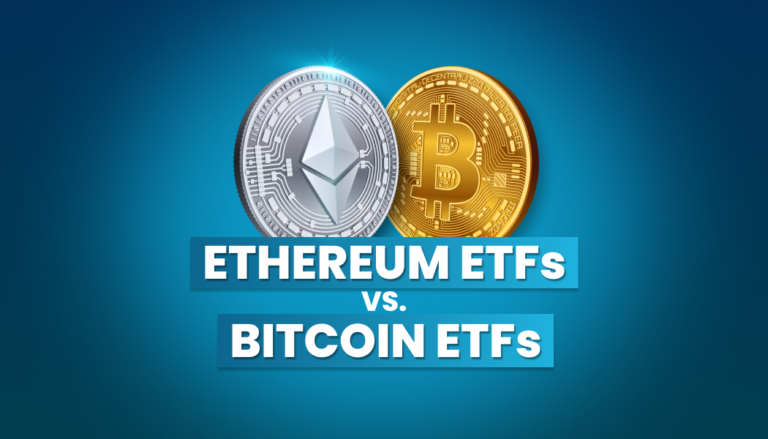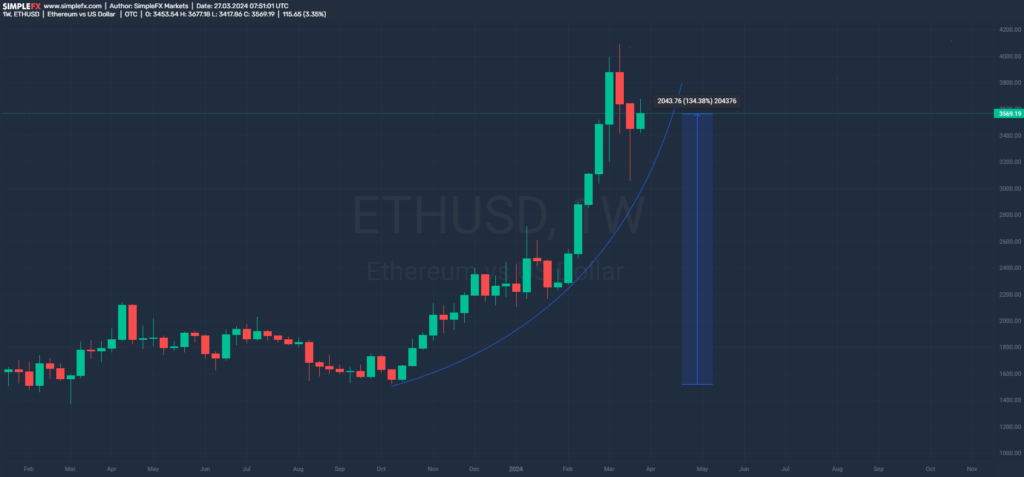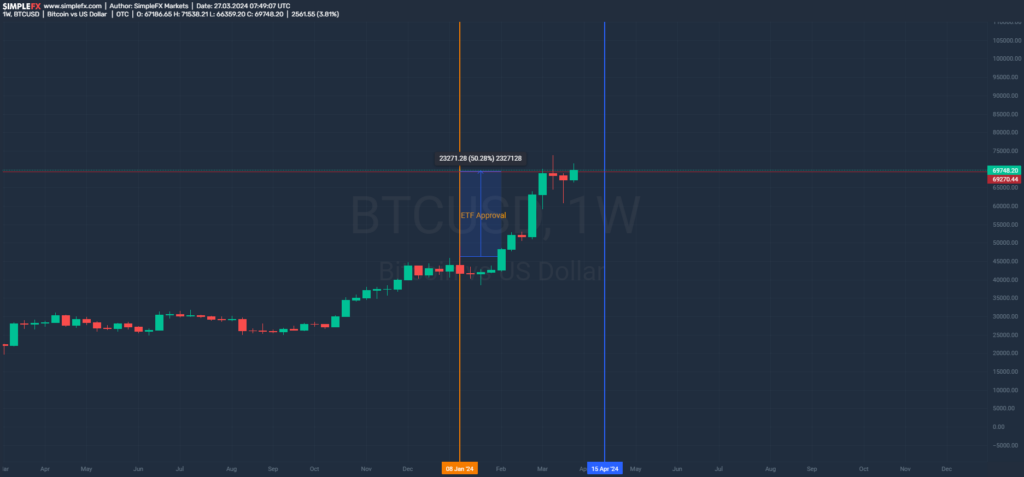The cryptocurrency landscape is vast and diverse, with Ethereum and Bitcoin as two of its most prominent pillars. While both have become household names, their investment vehicles, particularly Exchange-Traded Funds (ETFs), offer unique opportunities and challenges. This article delves into Bitcoin and possible Ethereum ETFs, highlighting their distinctions to help investors navigate these options more effectively.
Understanding Hypothetical Ethereum ETFs
Focus on Innovation and Technology
Probable Ethereum ETFs transcend mere cryptocurrency investment; they’re a stake in the digital revolution itself. Anchored in Ethereum’s rich soil of decentralized applications (dApps) and smart contracts, these ETFs represent a unique blend of finance and innovation. With Ethereum as their foundation, these ETFs beckon to those captivated by the blockchain’s potential to redefine technology and economy beyond the traditional confines of currency.
ETH parabolic move since last autumn.
Diverse Use Cases and Volatility
The network’s adoption and the burgeoning growth of decentralized applications (dApps) across sectors as diverse as finance and gaming are intricately linked to the value of Ethereum and, by extension, Ethereum ETFs. Furthermore, its value is underscored by Metcalfe’s Law, which posits that the value of a network is proportional to the square of its users. In Ethereum’s case, every new dApp and user not only expands its utility but potentially influences its value exponentially. It offers a compelling dimension to Ethereum ETFs’ investment allure.
Exploring Bitcoin ETFs
Store of Value and Market Sentiment
Bitcoin ETFs appeal to investors looking for a digital store of value or a hedge against inflation. Market sentiment, institutional adoption, and macroeconomic factors tend to influence the price of Bitcoin and its ETFs more than technological shifts that can impact Ethereum.
BTC insane growth after ETF approval.
Consistency and Recognition
Despite cryptocurrencies’ inherent fluctuations, the broader crypto market views Bitcoin as comparatively more steady. This perception is largely due to its advantage of being the first of its kind and its widespread acknowledgment. Consequently, Bitcoin ETFs might attract investors looking for a way to engage with cryptocurrency through a vehicle that exhibits somewhat more predictable market dynamics, leveraging Bitcoin’s solid reputation and liquidity.
Comparative Analysis
Investment Goals and Risk Appetite
Choosing between Ethereum ETFs and Bitcoin ETFs depends on an investor’s risk appetite and investment goals. Ethereum ETFs offer a route into a rapidly evolving technology platform with potentially higher volatility and rewards, suitable for those interested in blockchain technology’s future applications. Bitcoin ETFs are better suited for those seeking a more straightforward exposure to the cryptocurrency market’s movements, viewing Bitcoin as a digital store of value.
Market Dynamics and Future Prospects
Investors should also consider each cryptocurrency’s broader market dynamics and future prospects. Ethereum’s transition to proof-of-stake (PoS) with Ethereum 2.0 introduces potential valuation and investor perception changes—meanwhile, Bitcoin’s halving events and status as a mainstream financial asset influence its ETFs. Keeping abreast of these developments is crucial for making informed investment decisions.
Conclusion
Ethereum and Bitcoin ETFs appeal to varied types of investors, each powered by their unique tech, market trends, and future potential. Ethereum ETFs open doors to a world where blockchain technology extends far beyond mere currency, offering a broad spectrum of applications. On the other hand, Bitcoin ETFs offer a slice of the most recognized digital currency, valued for its stability and reputation as digital gold. Grasping these distinctions is key to crafting an investment strategy that fits your financial ambitions and risk comfort, guiding you to make savvy choices in the fast-evolving world of crypto ETFs.
The information provided on this website does not, and is not intended to, constitute investment advice; all information, content, and materials available on this site are for general informational purposes only.



